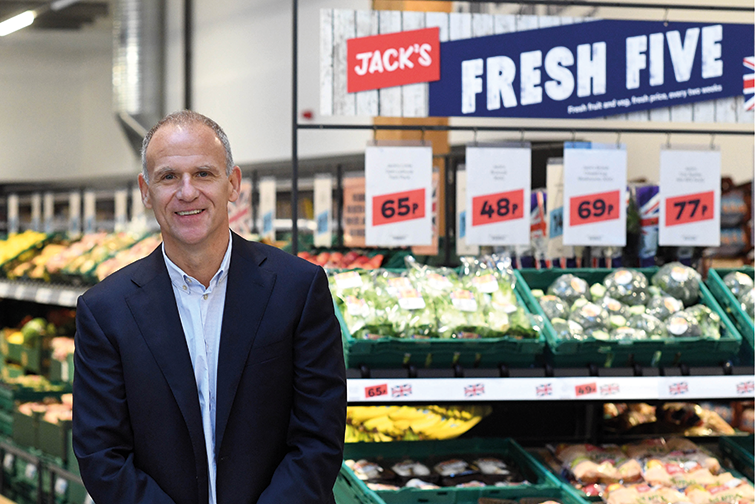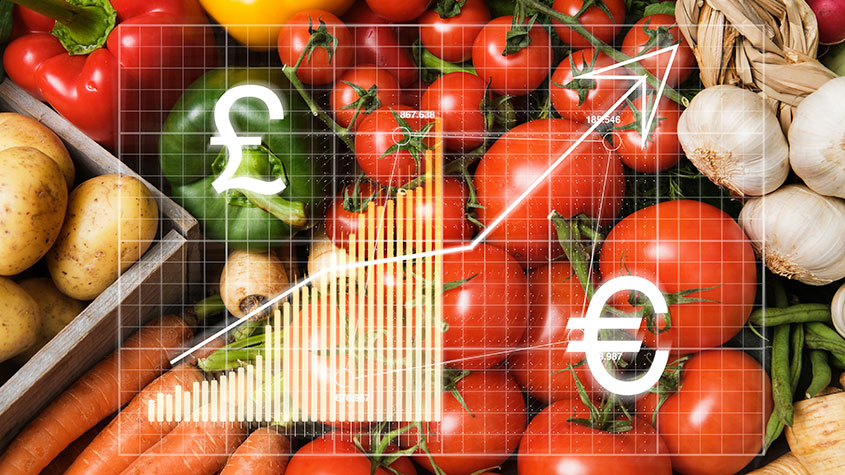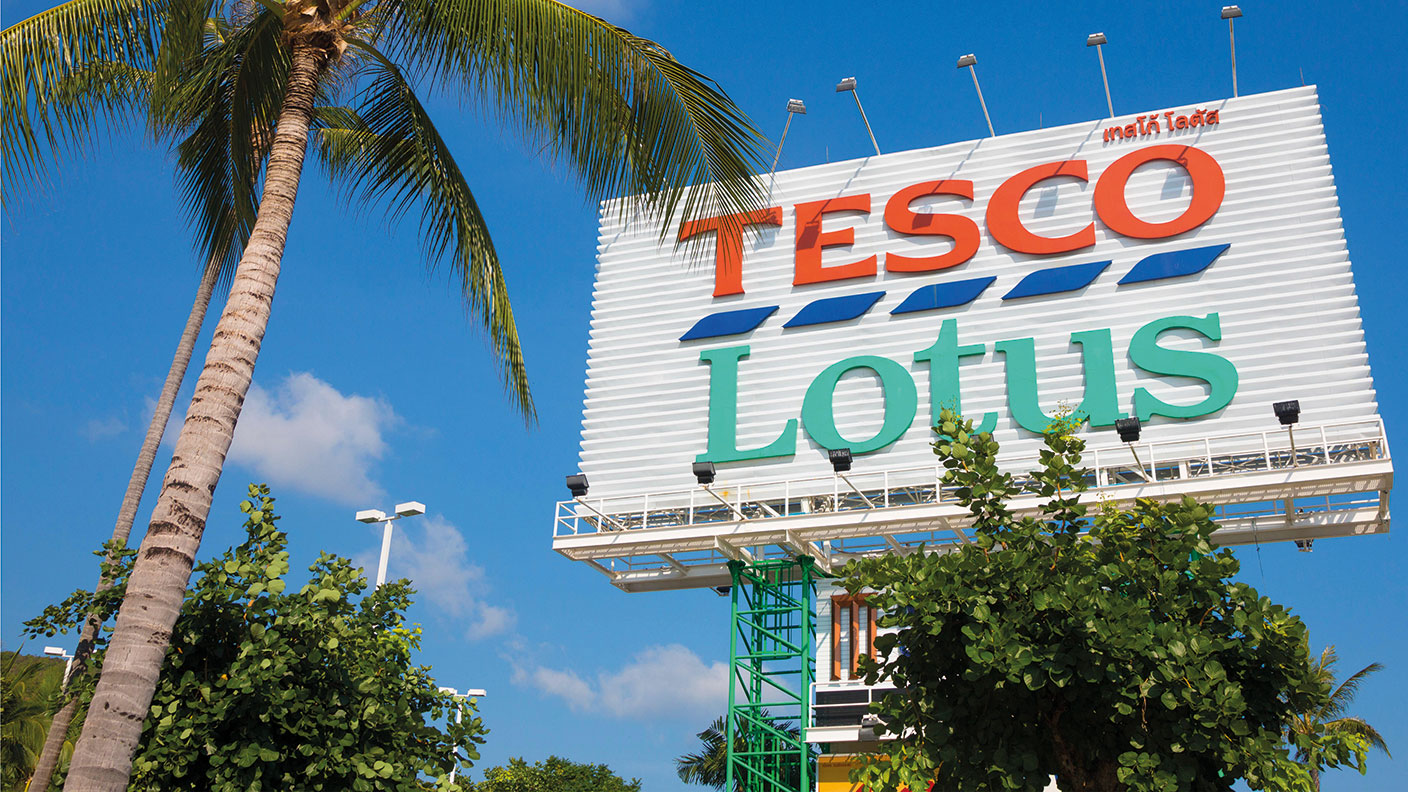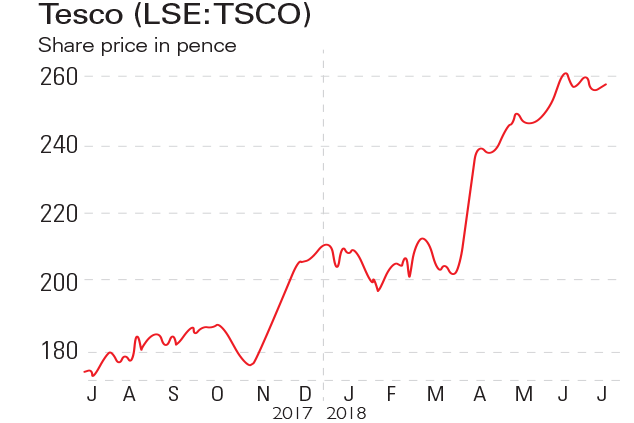Tesco should keep its Asian assets
The £7bn that Tesco could get for its Tesco Lotus business in Asia looks enticing. But holding on to it would be smarter, says Matthew Lynn.

Get the latest financial news, insights and expert analysis from our award-winning MoneyWeek team, to help you understand what really matters when it comes to your finances.
You are now subscribed
Your newsletter sign-up was successful
Want to add more newsletters?

Twice daily
MoneyWeek
Get the latest financial news, insights and expert analysis from our award-winning MoneyWeek team, to help you understand what really matters when it comes to your finances.

Four times a week
Look After My Bills
Sign up to our free money-saving newsletter, filled with the latest news and expert advice to help you find the best tips and deals for managing your bills. Start saving today!

The £7bn the store could get for its Tesco Lotus business looks enticing. Holding on would be smarter
It has been a tough few years for Tesco. The UK's largest grocery chain crashed in 2014 amid an accounting scandal and it has been struggling to revive its fortunes ever since. It sold off its South Korean and Turkish chains for more than $6bn, pulled out of the US and sold off British assets such as the Giraffe restaurant chain and its mortgage business. Dave Lewis, its chief executive until he leaves next summer, understandably wanted to concentrate on turning around its core British supermarkets. In the chain's glory years, it felt it could export a winning formula and conquer the world. When it was in trouble, all those overseas units were just a distraction from the problems at home.
Flogging the crown jewels
The mooted sale of its Asian unit, if it happens, will be the biggest divestment yet. Tesco Lotus operates 2,000 stores in Thailand and Malaysia. If it is sold it could fetch £7bn and perhaps more. The whole business is worth only slightly over £20bn. Tesco Lotus is one of the major grocery chains in two fast-growing emerging markets. It is a valuable asset. If it is sold, aside from a central European unit Tesco will be an exclusively British business. The British business faces many challenges the rise of the discount chains, Brexit, competition from online retailers so management needs to keep its eye on the ball. But selling the Asian unit will make the business a lot duller.
MoneyWeek
Subscribe to MoneyWeek today and get your first six magazine issues absolutely FREE

Sign up to Money Morning
Don't miss the latest investment and personal finances news, market analysis, plus money-saving tips with our free twice-daily newsletter
Don't miss the latest investment and personal finances news, market analysis, plus money-saving tips with our free twice-daily newsletter
The British grocery market is saturated. There is very little prospect of any meaningful growth. There is hardly a town left that doesn't already have a supermarket. Indeed, lots probably have too many. If immigration falls, as it probably will, the population will be static, so there is little prospect of demand expanding. Fewer and fewer people are going to the shops any more as retailers close on the high street and shopping centres become less attractive places to visit. We all need to eat, so we will still be buying groceries, but succeeding in the industry is going to be a dull, hard grind that will take hard work just to stand still.
By contrast, Asia offers growth. Malaysia and Thailand are still developing countries, with growth rates this year of 4.6% and 3.8% respectively. Vietnam, Indonesia and China all offer possibilities for expansion. Tesco had made a great start and started building a brand and expertise in one of the most dynamic regions of the world. If the UK business was stable, Asia could have provided the sizzle along with the steak.
Better to think of the long term
When a company gets into trouble, it is easy to think of selling off units. Some cash will be raised, shareholders will get a special dividend and the company will look in better shape for a few years. But it will sacrifice the potential for long-term growth. Associated British Foods could easily have sold off its Primark fashion chain years ago, for example. In some ways it would have made a lot of sense. But Primark now contributes much of its profits and growth. Whitbread was an old and slightly dull brewer, but its Premier Inn and Costa Coffee chains have both turned into the real drivers of its growth. Costa has now been sold to Coca-Cola, but the budget hotel chain is still thriving. Next was originally launched as a unit of the now largely forgotten Hepworth's chain and could have been sold off in its first decade, but went on to become one of the UK's most successful retailers.
The City is quick to demand that units be divested, that companies be sold off and that businesses that drift apart be demerged. It likes the deal-making and shareholders get an instant fix of cash. Yet the price in the medium-term can be a high one. A company needs to have the potential for expansion. It needs some excitement and zip. And it often needs to hang onto an asset for a very long time to realise its full potential. Tesco stripped of its Asian unit will be a simpler business. But it will also be a boring one. In truth, shareholders should worry a lot less about an instant cash injection and a lot more about long-term growth because that is what is going to deliver over the decades.
Get the latest financial news, insights and expert analysis from our award-winning MoneyWeek team, to help you understand what really matters when it comes to your finances.

Matthew Lynn is a columnist for Bloomberg and writes weekly commentary syndicated in papers such as the Daily Telegraph, Die Welt, the Sydney Morning Herald, the South China Morning Post and the Miami Herald. He is also an associate editor of Spectator Business, and a regular contributor to The Spectator. Before that, he worked for the business section of the Sunday Times for ten years.
-
 Early signs of the AI apocalypse?
Early signs of the AI apocalypse?Uncertainty is rife as investors question what the impact of AI will be.
-
 Reach for the stars to boost Britain's space industry
Reach for the stars to boost Britain's space industryopinion We can’t afford to neglect Britain's space industry. Unfortunately, the government is taking completely the wrong approach, says Matthew Lynn
-
 How to profit from rising food prices: which stocks should you invest in?
How to profit from rising food prices: which stocks should you invest in?Tips Food prices are rising – we look at the stocks to avoid and the one to invest in this sector.
-
 Tesco looks well-placed to ride out the cost of living crisis – investors take note
Tesco looks well-placed to ride out the cost of living crisis – investors take noteAnalysis Surging inflation is bad news for retailers. But supermarket giant Tesco looks better placed to cope than most, says Rupert Hargreaves.
-
 Tesco sells its retail subsidiary in Thailand and Malaysia for £8bn
Tesco sells its retail subsidiary in Thailand and Malaysia for £8bnNews Tesco has agreed to sell its southeast Asian operations to Thai conglomerate Charoen Pokphand for £8.2bn in cash.
-
 Tesco cashes out of the mortgage business
Tesco cashes out of the mortgage businessFeatures Tesco Bank has left the mortgage market by selling its £3.7bn loan book. Its 23,000 customers will be moved to the Halifax, a subsidiary of Lloyds.
-
 Tesco wields the axe
Tesco wields the axeFeatures Britain’s biggest supermarket is cutting back on staff and fresh food. Will the move prove counterproductive? Matthew Partridge reports.
-
 If you'd invested in: Tesco and Associated British Foods
If you'd invested in: Tesco and Associated British FoodsFeatures Tesco has seen its market value rise almost 50% in a year, while AB Foods has seen shares slide despite a rise in profits.
-
 What's behind Tesco’s alliance with Carrefour?
What's behind Tesco’s alliance with Carrefour?Features Tesco is clubbing together with French rival Carrefour to bulk buy own-label goods in an effort to cut costs. Will it succeed? Ben Judge reports.
-
 Lessons from Tesco’s turnaround
Lessons from Tesco’s turnaroundOpinion Retailers have it tough, but Tesco has shown that it’s still possible to thrive, says Matthew Lynn.